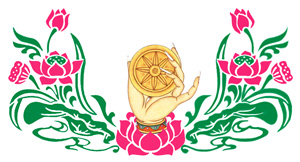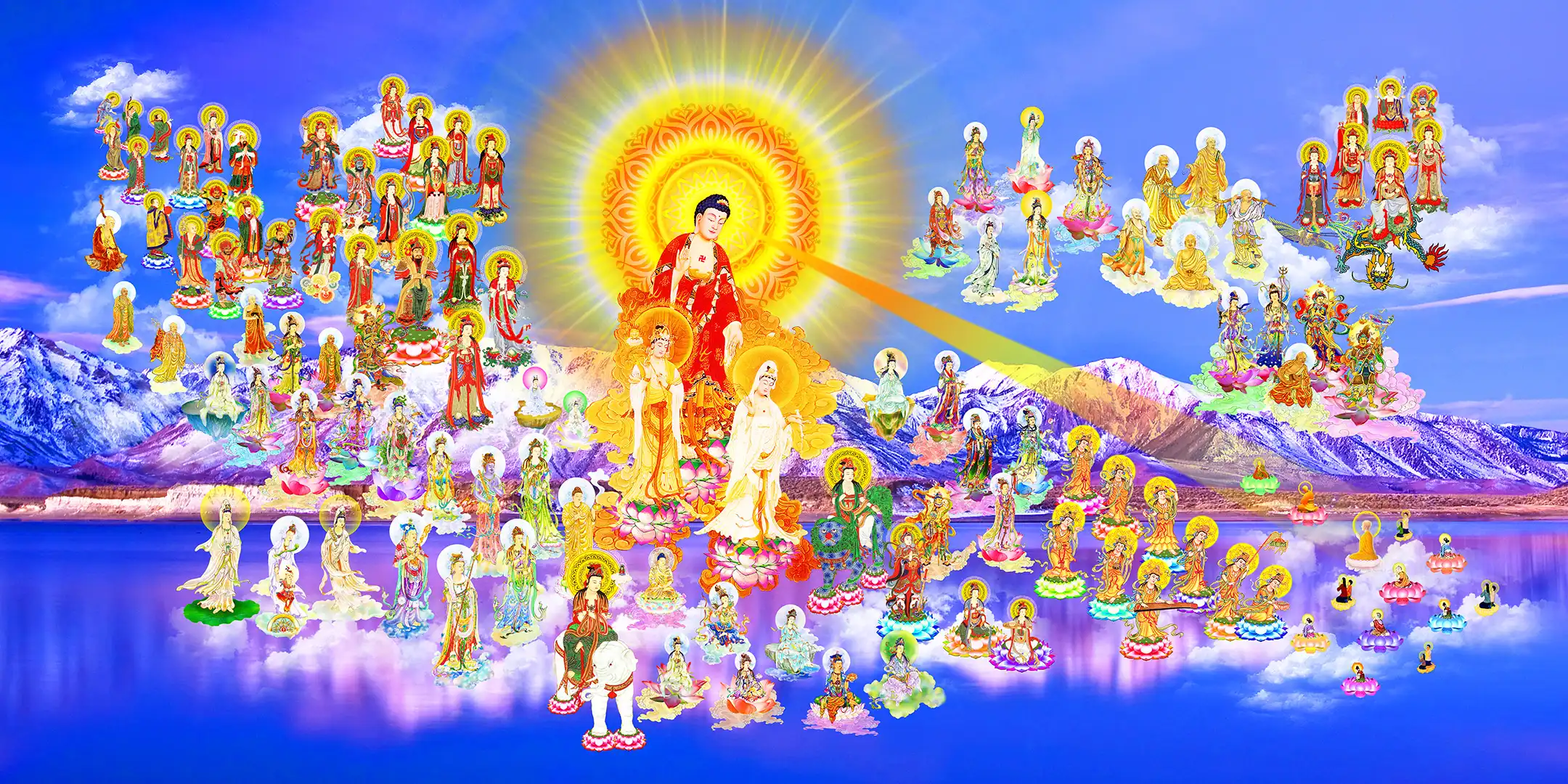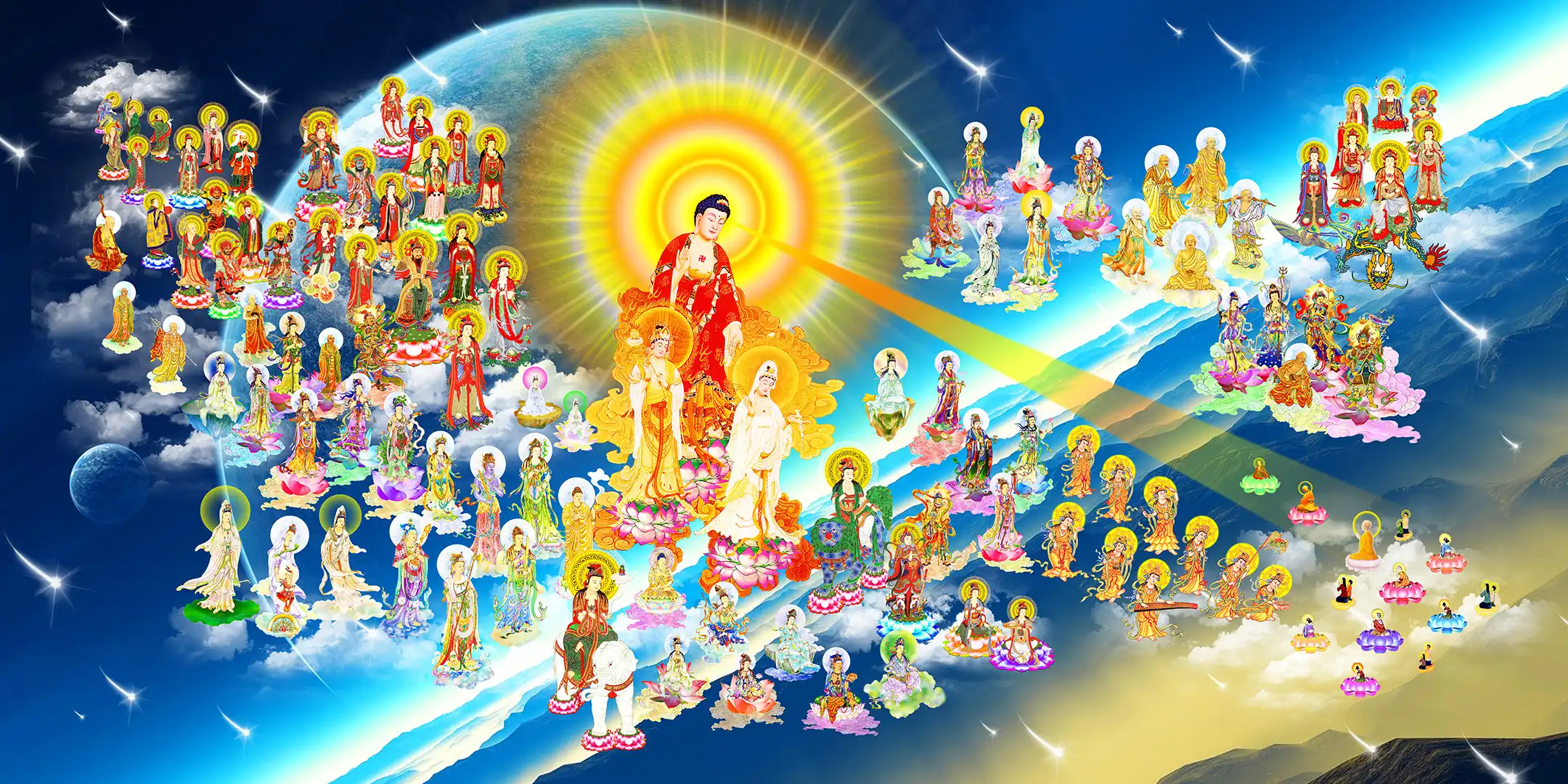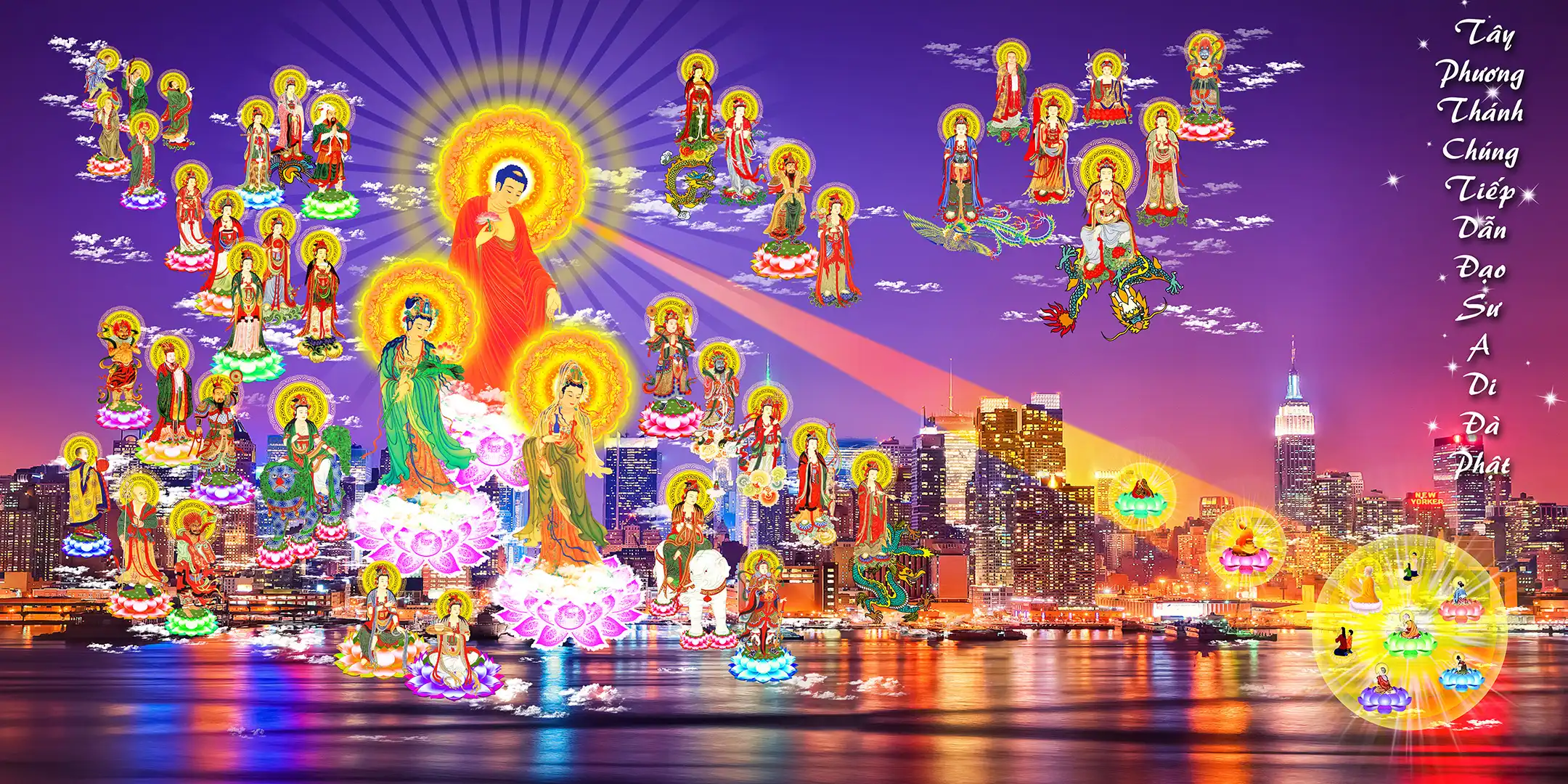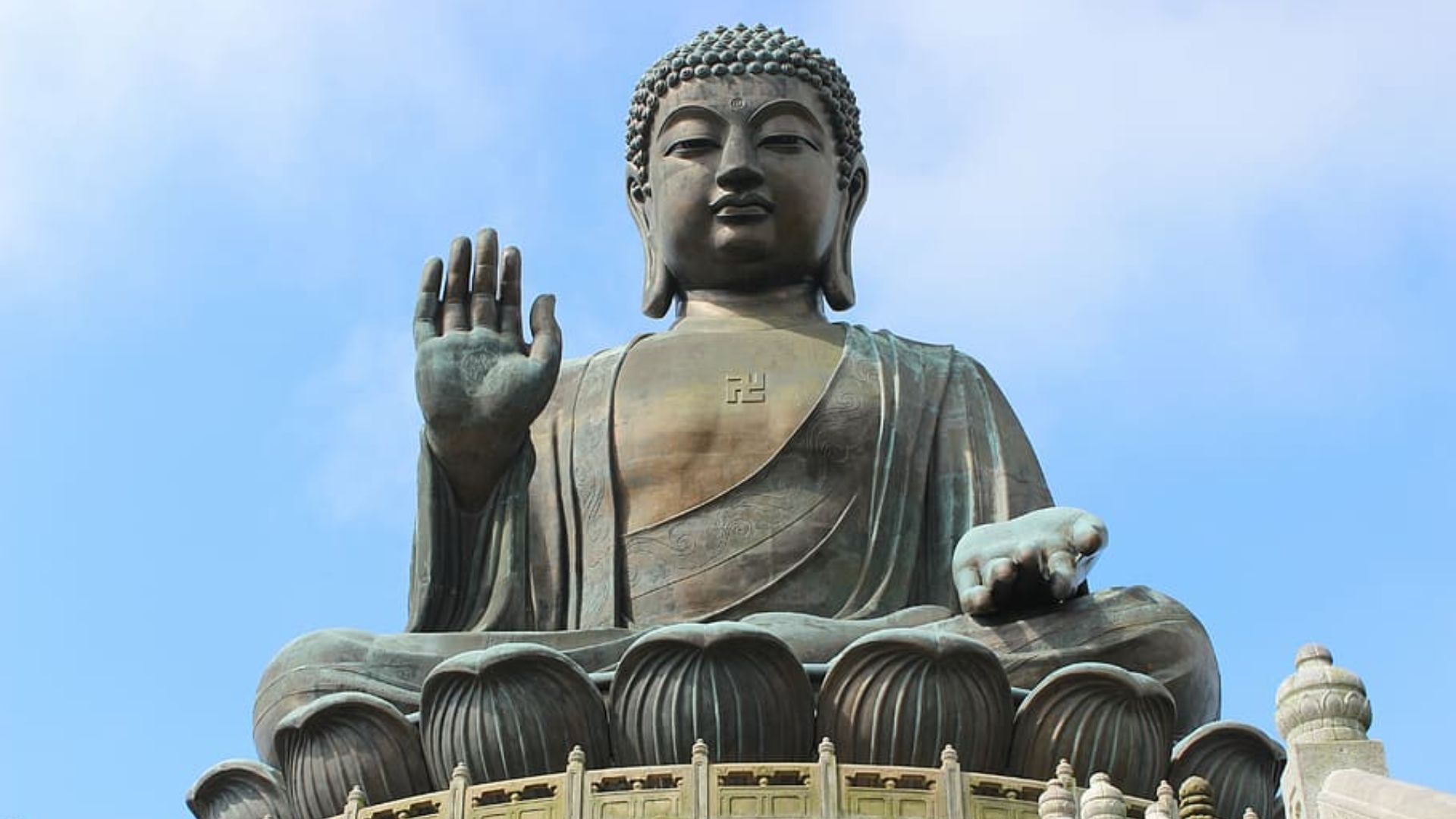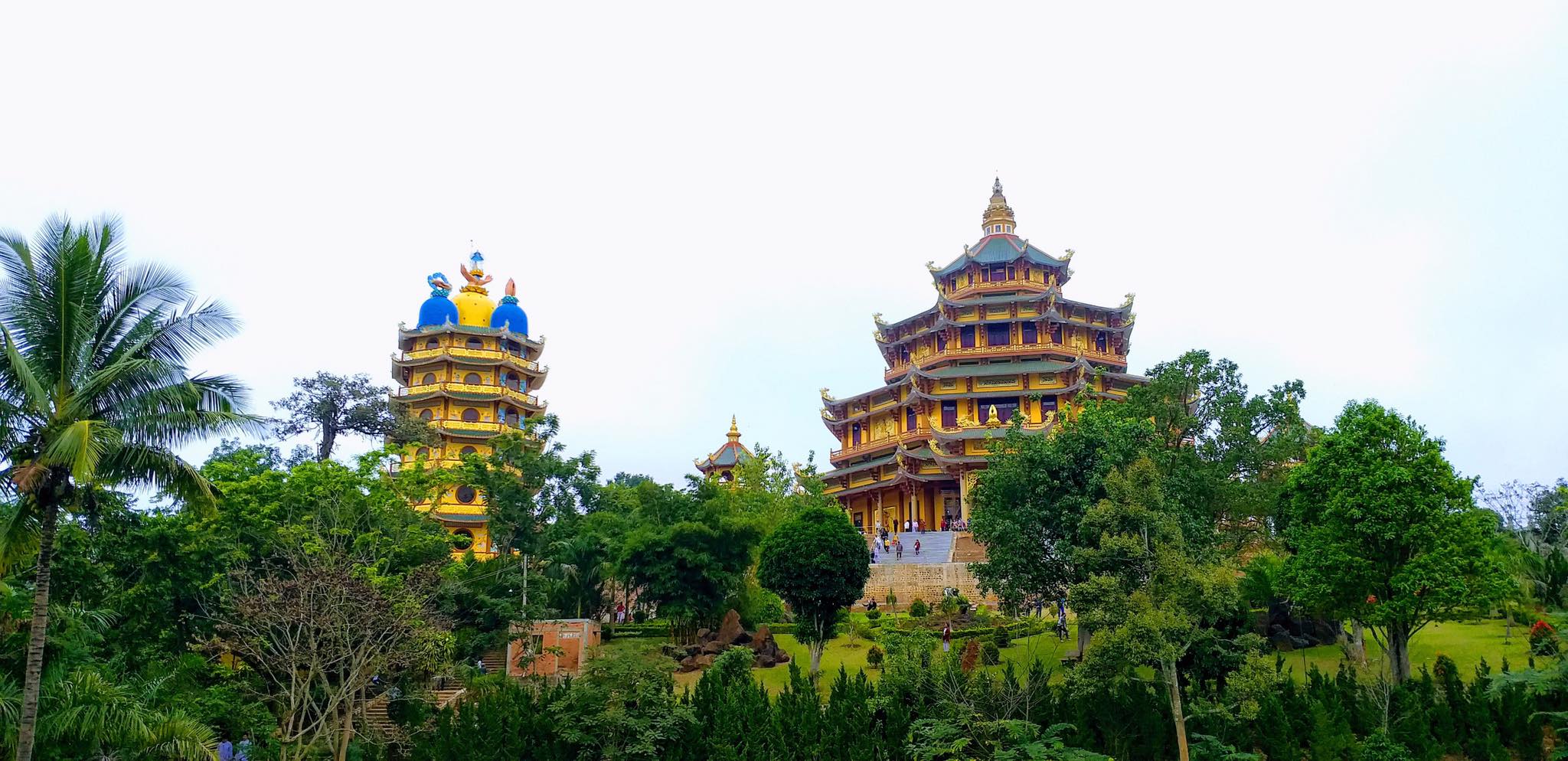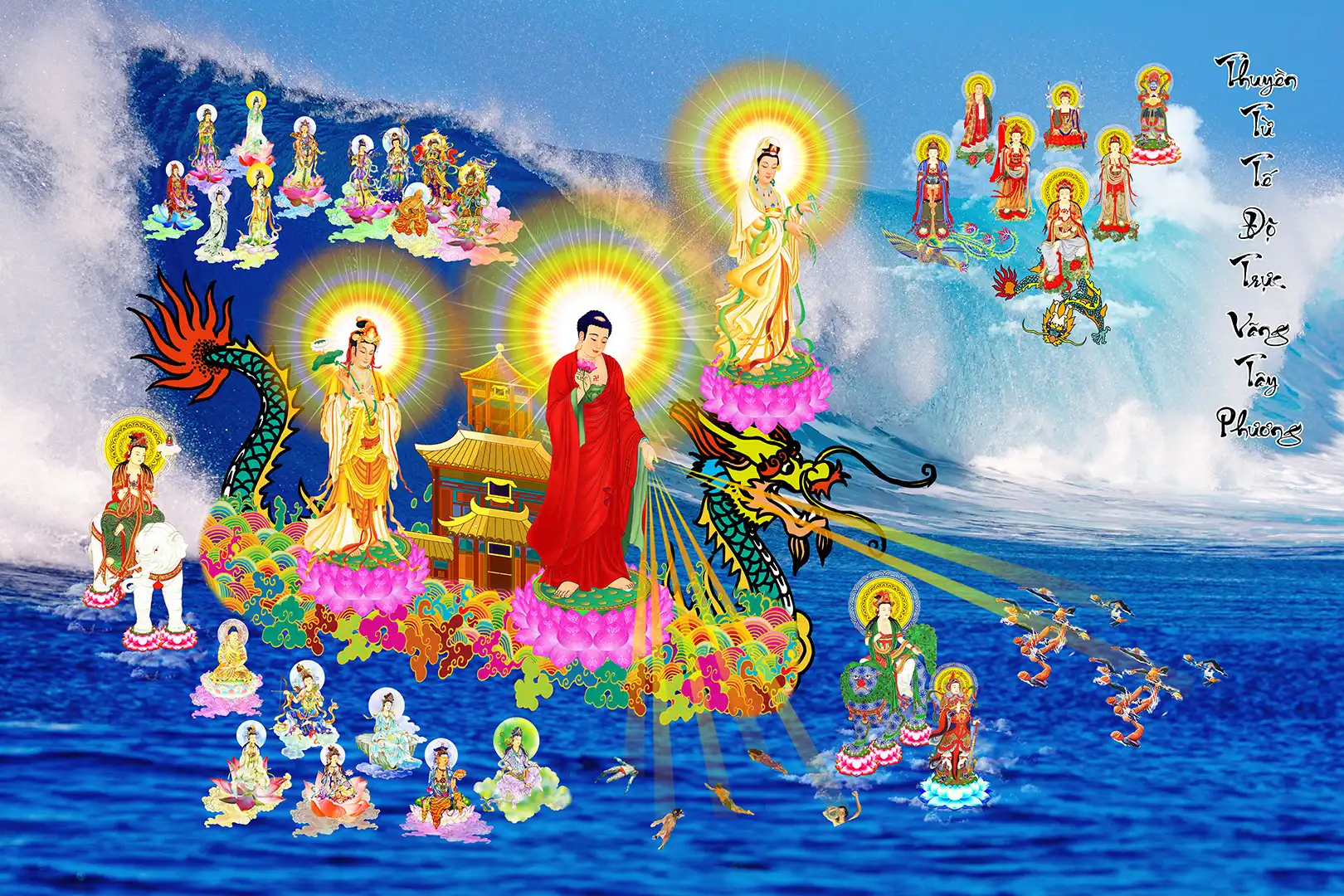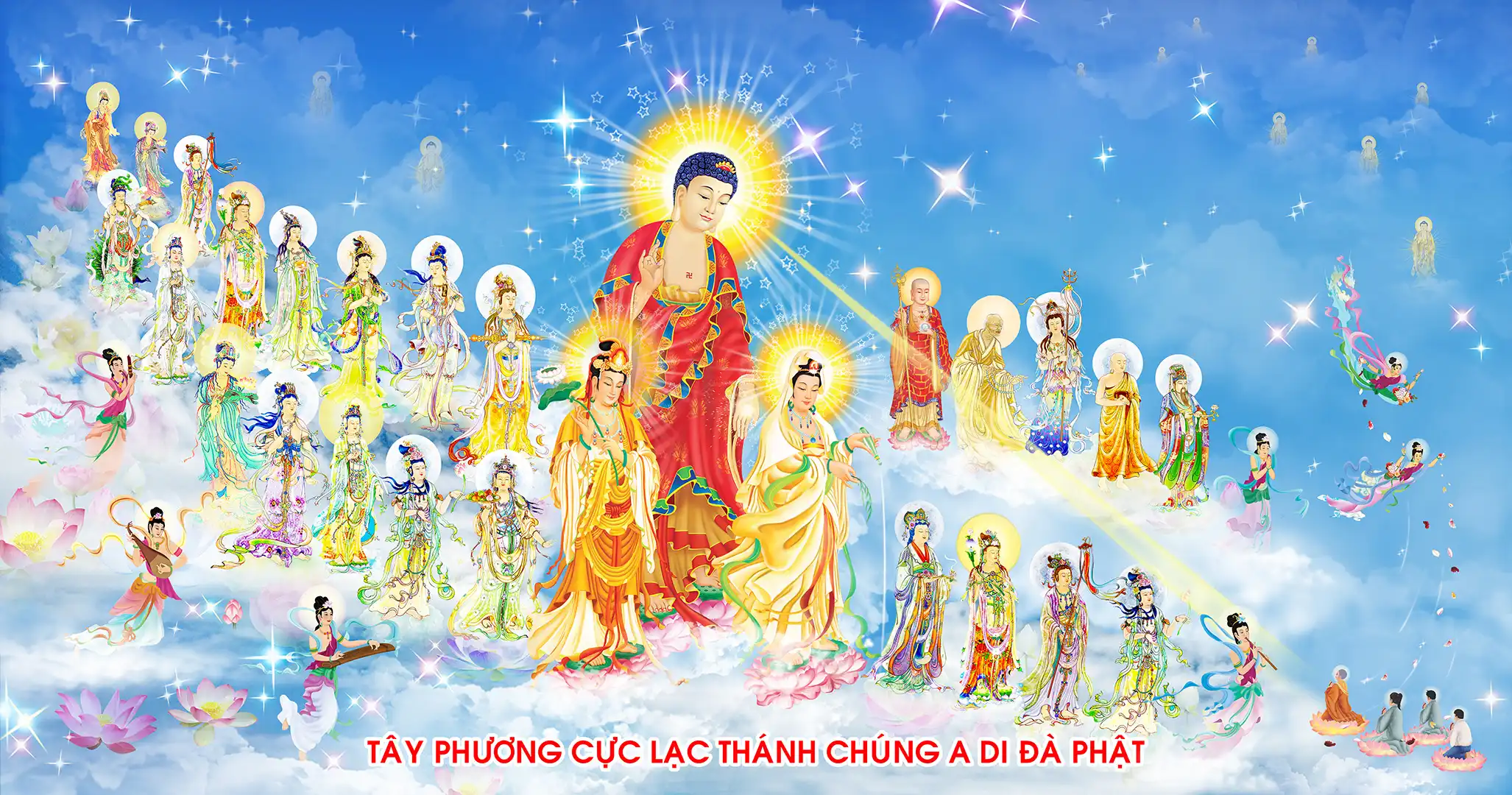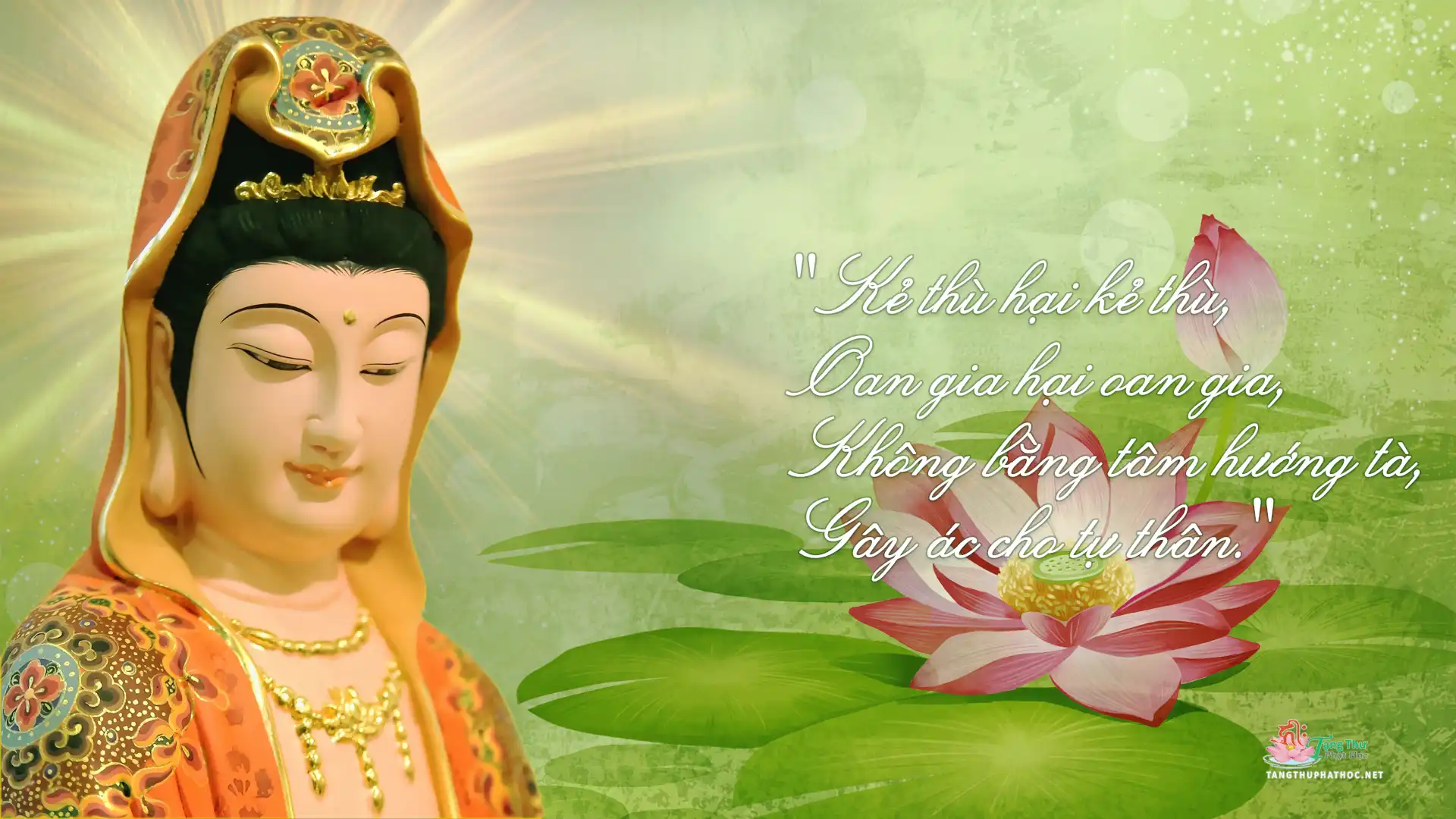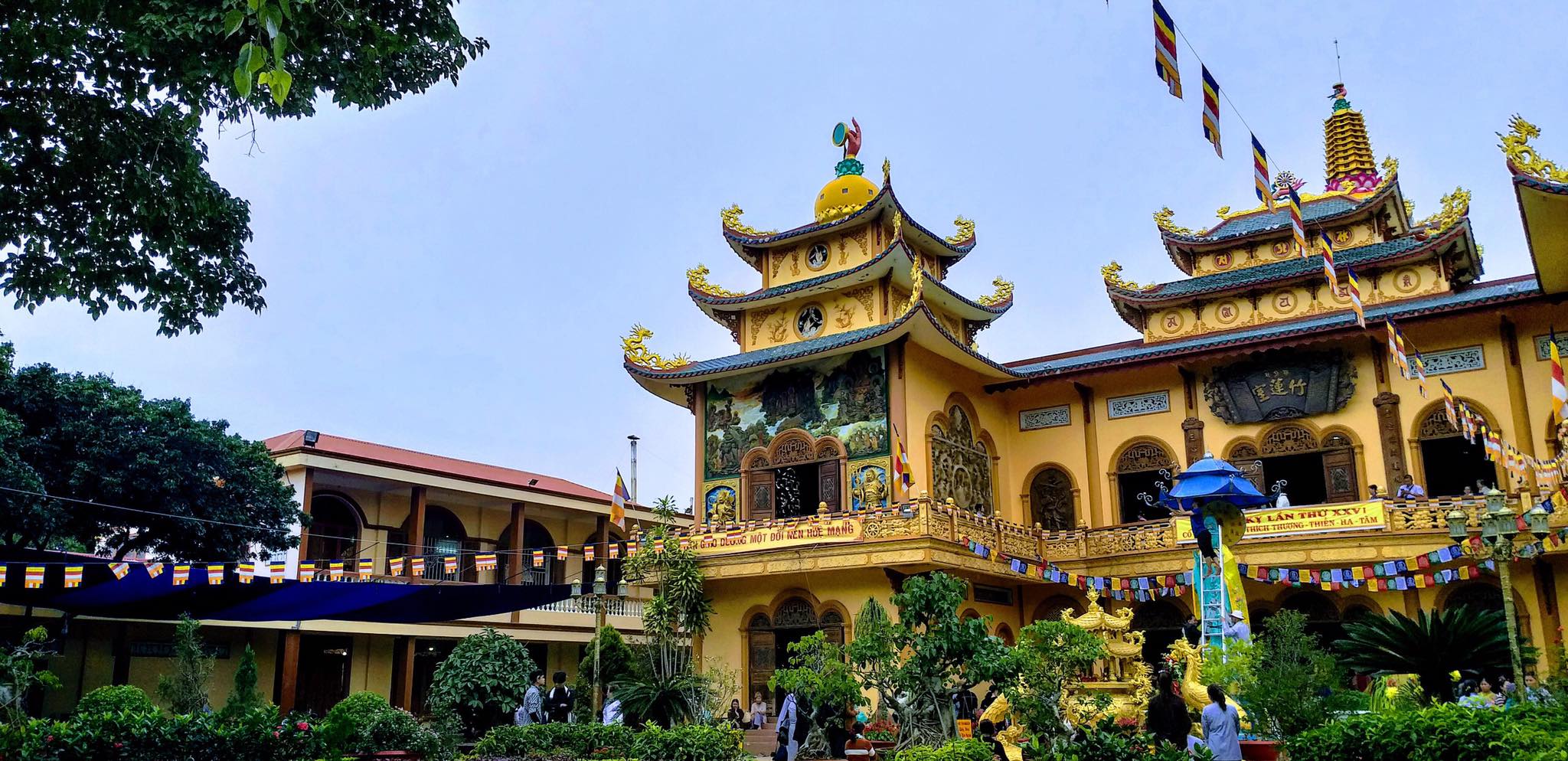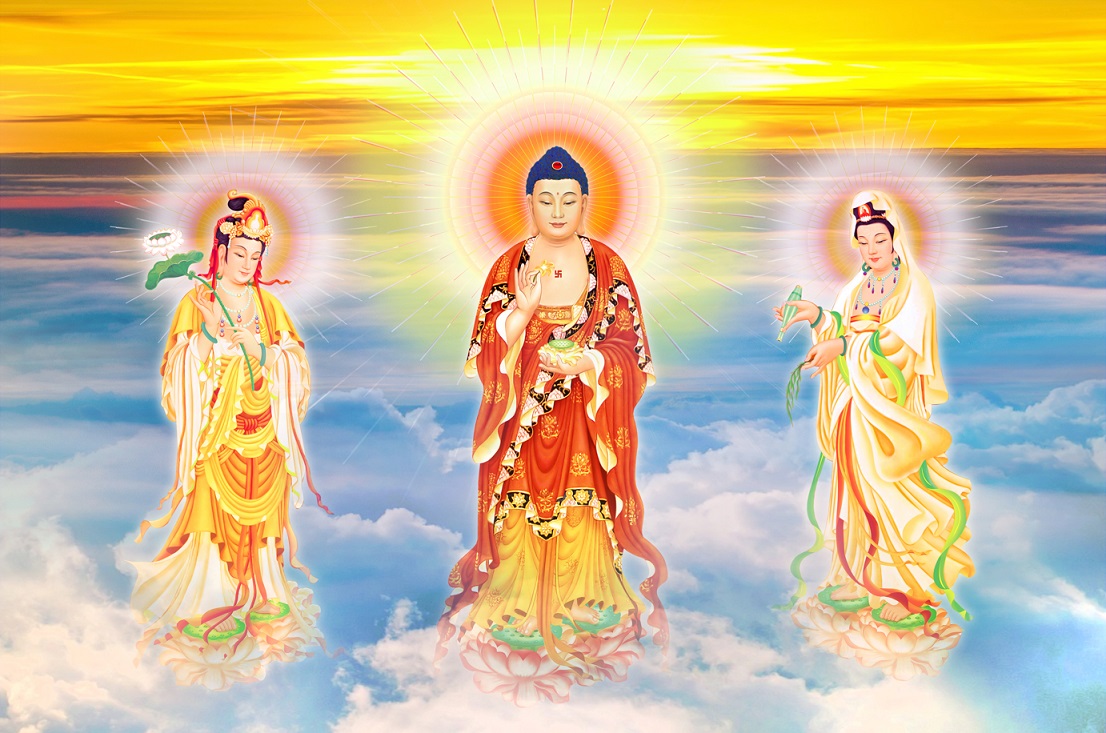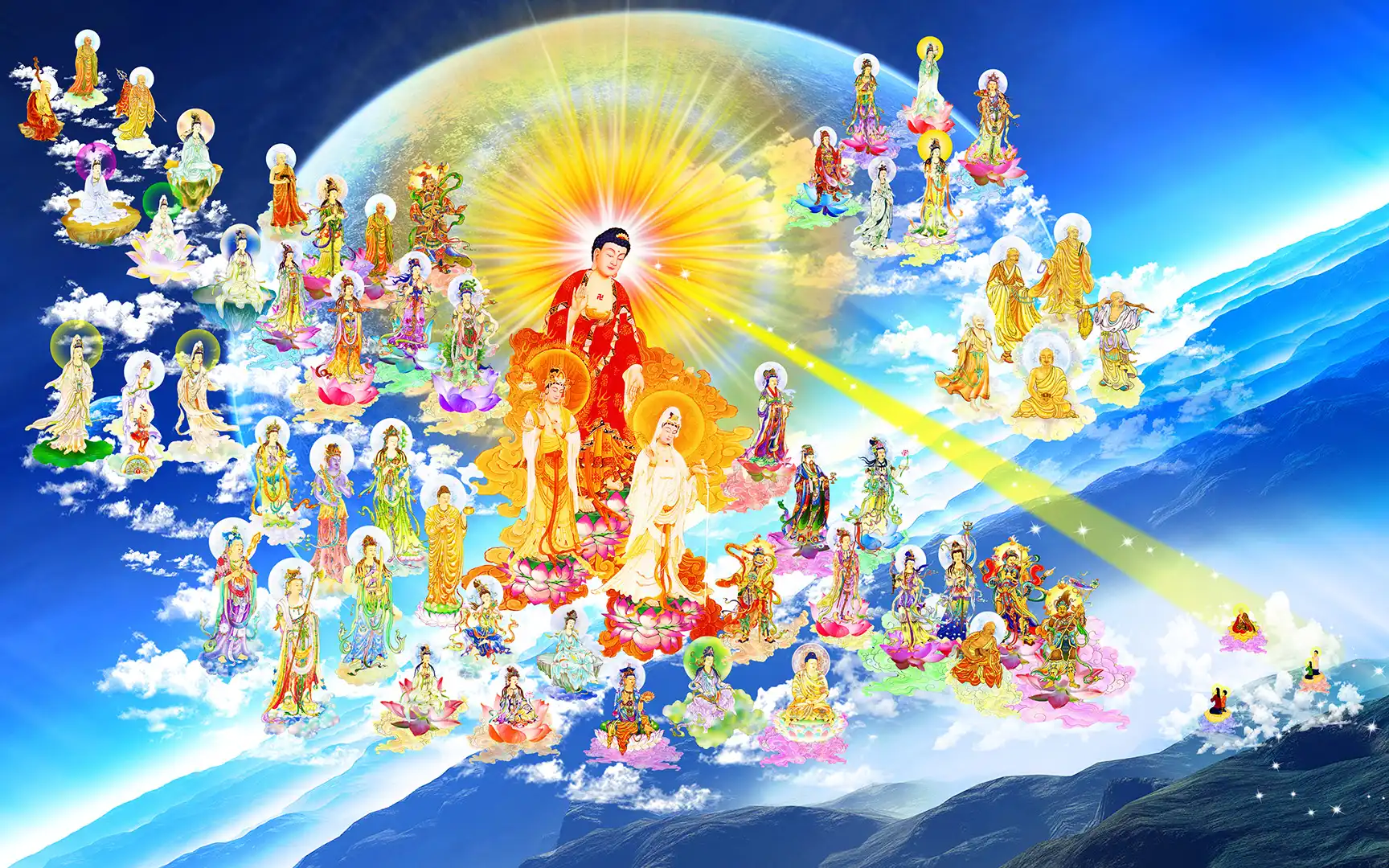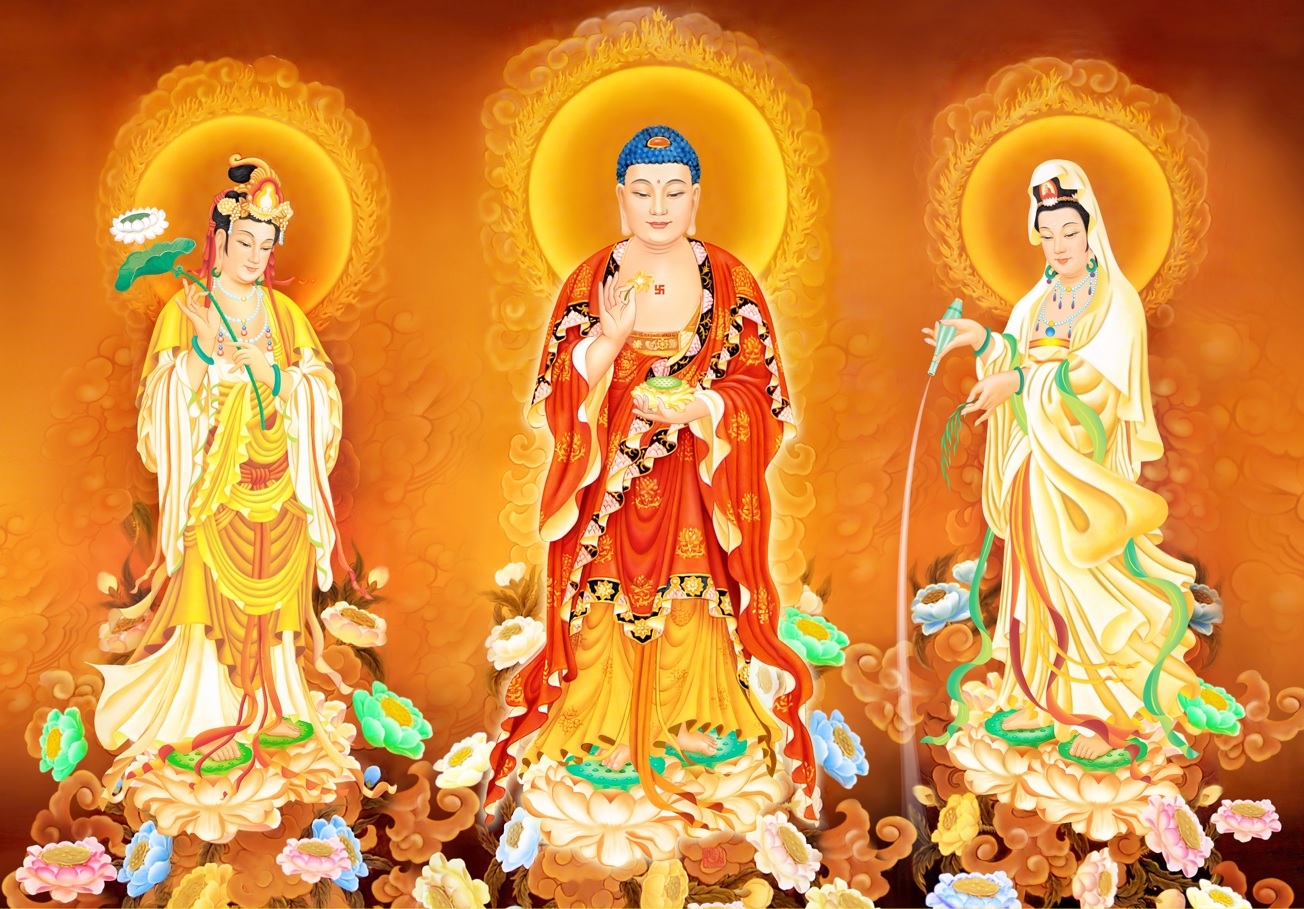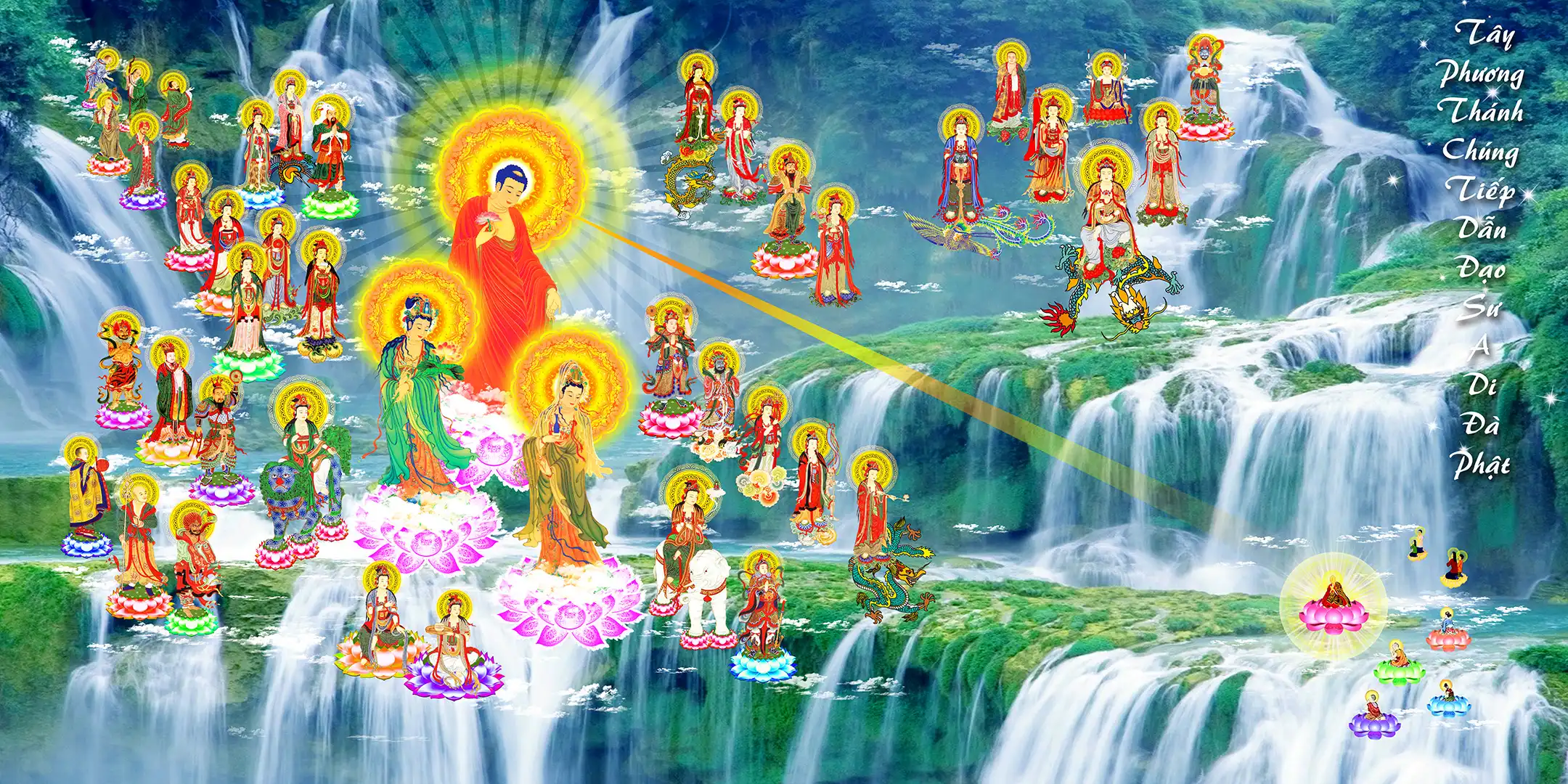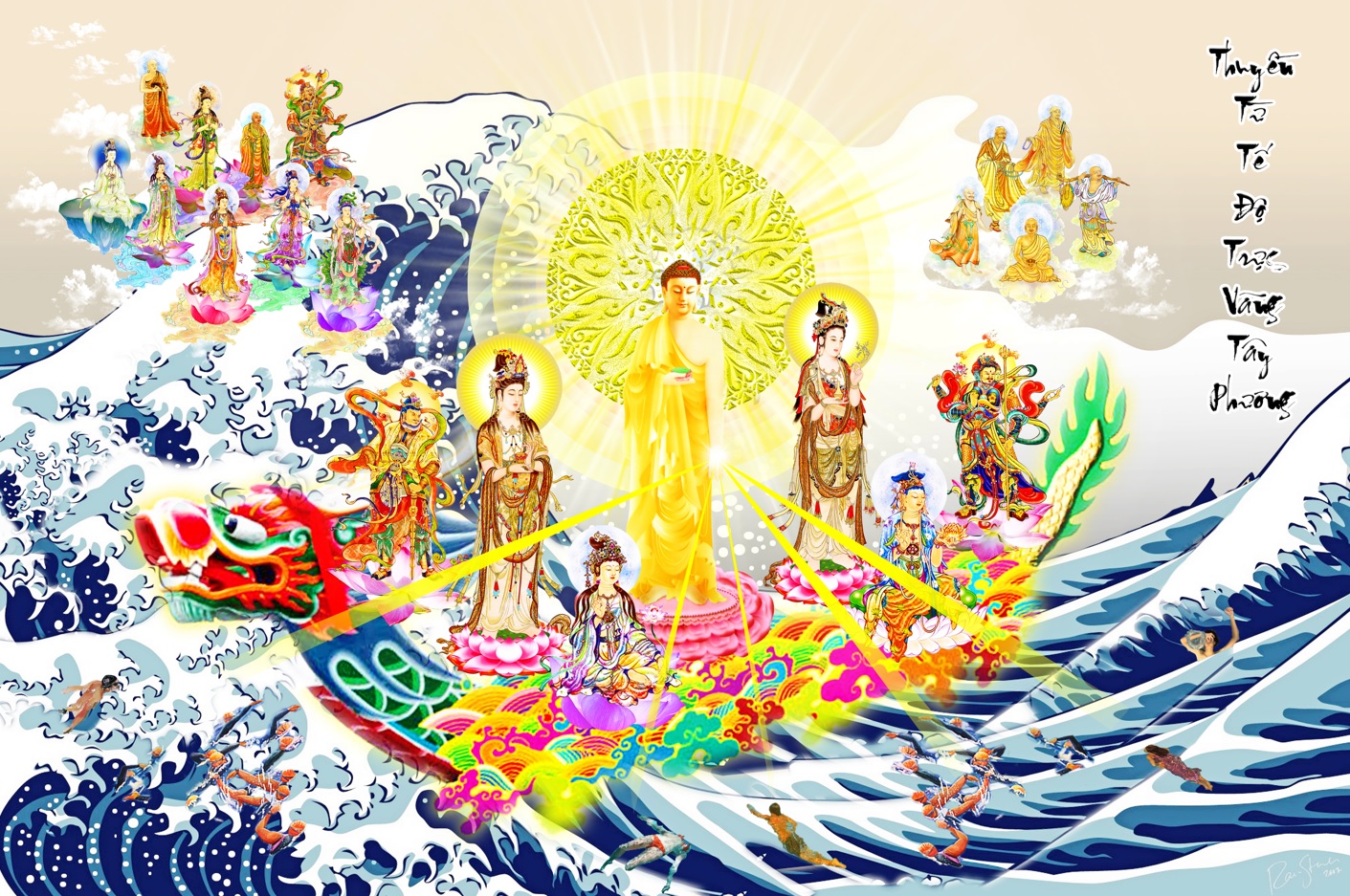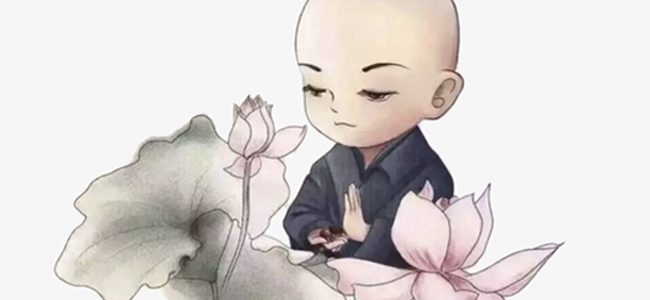Tổ Đình Minh Đăng Quang
PHẬT HỌC TỪ ĐIỂN – BUDDHIST DICTIONARY
Thiện Phúc
PHỤ LỤC (APPENDICES)
PHỤ LỤC K – Appendix K
Kinh Duy Ma Cật
The Vimalakirti Sutra
CHƯƠNG MƯỜI BỐN—CHAPTER FOURTEEN
—PHẨM CHÚC LỤY—INJUNCTION to SPREAD this SUTRA
Bấy giờ Phật bảo Bồ Tát Di Lặc rằng: “Nầy Di Lặc! Ta nay đem pháp Vô Thượng Chánh đẳng Chánh giác đã chứa nhóm vô lượng ức a tăng kỳ kiếp mà phú chúc cho ông. Những thứ kinh như thế, sau khi Phật diệt độ về đời mạt kiếp các ông phải dùng thần lực diễn nói lưu bố khắp cõi Diêm Phù Ðề chớ để dứt mất. Vì sao? Về đời vị lai sẽ có những thiện nam tử, thiện nữ nhân, Thiên, Long, quỷ thần, Càn thát bà, La sát, vân vân phát tâm Vô thượng Chánh đẳng Chánh giác, ưa pháp Ðại thừa, nếu không cho họ nghe những kinh như thế thời mất lợi hành. Hạng người như thế nghe những kinh đó tất ưa thích tin chịu phát tâm hy hữu, sẽ đảnh lễ vâng thọ, rồi theo chỗ cần lợi lạc cho chúng sanh mà diễn nói pháp.”—The Buddha then said: to Maitreya: “Maitreya, I now entrust you with the Dharma of supreme enlightenment which I have collected during countless aeons. In the third (and last) period of the Buddha kalpa you should use transcendental power to proclaim widely in Jambuvipa (the earth) (profound) sutras such as this one, without allowing them to be discontinued. For in future generations there will be virtuous men and women, as well as heavenly dragons, ghosts, spirits, gandharvas, and raksasas who will take pleasure in the great Dharma and will set their minds on the quest of supreme enlightenment; if they do not hear about such sutras they will miss a great advantage. For these people are fond of and believe in these sutras, which they will readily accept by placing them on their heads and which they will widely proclaim for the profit of living beings.
Di Lặc! Ông phải biết, Bồ Tát có hai tướng. Sao gọi là hai? Một là những người ưa những câu văn hay đẹp, hai là những người không sợ nghĩa sâu xa, hiểu được đúng như thật. Như hạng ưa những câu văn hay đẹp, phải biết đó là Bồ Tát mới học. Nếu ở nơi kinh điển thậm thâm không nhiễm, không trước, không có chút sợ sệt và hiểu rõ được đó, nghe rồi tâm thanh tịnh thọ trì, đọc tụng đúng như lời nói mà tu hành, phải biết đó là hạng tu hành đã lâu—Maitreya, you should know that there are two categories of Bodhisattvas: those who prefer proud words and a racy style, and those who are not afraid (of digging out) the profound meanings which they can penetrate. Fondness of proud words and a racy style denotes the superficiality of a newly initiated Bodhisattva; but he who, after hearing about the freedom from infection and bondage as taught in profound sutras, is not afraid of their deep meanings which he strives to master, thereby developing a pure mind to receive, keep, read, recite and practise (the Dharma) as preached is a Bodhisattva who has trained for a long time.
Nầy Di Lặc! Lại có hai pháp gọi là Bồ Tát mới học, không thể quyết định pháp thậm thâm. Hai pháp là chi? Một là những kinh điển thậm thâm chưa từng nghe nếu nghe thời sợ sệt sanh lòng nghi, không tùy thuận được, chê bai không tin rồi nói rằng: “Kinh nầy từ trước đến giờ ta chưa từng nghe, từ đâu đến đây?” Hai là nếu có người hộ trì giải nói những kinh sâu xa như thế, không chịu gần gũi, cúng dường cung kính, hoặc ở nơi đó nói lỗi xấu xa của người kia. Có hai pháp đấy, phải biết Bồ Tát mới học chỉ là tự tổn hại, chứ không thể ở nơi pháp thậm thâm mà điều phục được tâm mình—Maitreya, there are two classes of newly initiated Bodhisattvas who cannot understand very deep Dharmas: those who have not heard about profound sutras and who, giving way to fear and suspicion, cannot keep them but indulge in slandering them, saying: ‘I have never heard about them; where do they come from?’, and those who refuse to call on, respect and make offerings to the preachers of profound sutras or who find fault with the latter; these are two classes of newly initiated Bodhisattvas who cannot control their minds when hearing the deep Dharma, thereby harming themselves.
Nầy Di Lặc! Lại có hai pháp, Bồ Tát dầu tin hiểu thâm pháp, vẫn còn tự tổn hại chớ không thể chứng được vô sanh pháp nhẫn. Hai pháp là chi? Một là khinh dễ các Bồ Tát mới học mà không dạy bảo. Hai là tin hiểu thâm pháp mà lại chấp tướng phân biệt—Maitreya, further, there are two categories of Boshisattvas who harm themselves and fail to realize the patient endurance of the uncreate in spite of their belief and understanding of the deep Dharma: they are (firstly) those who belittle newly initiated Boshisattva and do not teach and guide them; and (secondly) those who, despite their faith in the deep Dharma, still give rise to discrimination between form and formlessness.”
Sau khi nghe Phật thuyết giảng, Bồ Tát Di Lặc bạch Phật rằng: “Bạch Thế Tôn! Thật chưa từng có! Như lời Thế Tôn đã nói, con quyết xa lìa các lỗi như thế, xin vâng giữ pháp Vô thượng Chánh đẳng Chánh giác đã chứa nhóm từ vô lượng a tăng kỳ kiếp của Như Lai. Nếu vị lai có người thiện nam tử hay thiện nữ nhân nào cầu pháp Ðại thừa, con sẽ làm cho tay người đó được những kinh như thế và cho họ cái sức ghi nhớ để thọ trì đọc tụng, diễn nói cho người. Bạch Thế Tôn! Nếu đời sau có người thọ trì, đọc tụng, diễn nói kinh nầy cho người khác, đó chính là thần lực của Di Lặc lập nên—After hearing the Buddha expound the Dharma, Maitreya said: “World Honoured One, I have not heard all this before. As you have said, I shall keep from these evils and uphold the Dharma of supreme enlightenment which the Tathagata has collected during countless aeons. In future, if there are virtuous men and women who seek for Mahayana, I shall see to it that this sutra will be placed in their hands, and shall use transcendental power to make them remember it so that they can receive, keep, read, recite and proclaim it widely.
“World Honoured One, in the coming Dharma ending age, if there are those who can receive, keep, read and recite this sutra and expound it widely, they will do so under the influence of my transcendental power.”
·Phật nói: “Hay thay! Hay thay! Nầy Di Lặc! Như lời ông nói, ta sẽ giúp cho ông vui thêm.”—The Buddha said: “Excellent, Maitreya, excellent; as you have said, I will help you achieve this great joy.”
·Bấy giờ các Bồ Tát chắp tay bạch Phật rằng: “Sau khi Như Lai diệt độ, chúng con cũng ở cõi nước trong mười phương, truyền bá cùng khắp pháp Vô thượng Chánh đẳng Chánh giác, và sẽ dẫn dắt những người nói pháp được kinh nầy.”—At that, all the Bodhisattvas in the assembly brought their palms together and said to the Buddha: After your nirvana, we will also proclaim this Dharma of supreme enlightenment widely in the ten directions and will guide preachers of Dharma to obtain this sutra.”
Lúc đó bốn vị Thiên vương bạch Phật rằng: “Ở các chỗ hoặc thành ấp, tụ lạc, núi rừng, đồng nội có quyển kinh nầy, có người đọc tụng, giải nói, con sẽ đem các quyến thuộc đi đến chỗ đó để nghe pháp, ủng hộ cho người đó mỗi phía trăm do tuần, không để người cố ý tìm làm hại.”—The four kings of devas said to the Buddha: “World Honoured One, in all towns and villages, in the groves and wilderness, and where there is this sutra and people reading, reciting, explaining and proclaiming it, I will lead local officials to go to their places to listen to the Dharma and to protect them so that no one dares to one within one hundred yojanas of their places to trouble them.”
Bấy giờ Phật bảo A Nan: “Nầy A Nan! Ông hãy thọ trì lấy kinh nầy, rộng nói khắp truyền cho đời sau.”—The Buddha then said to Ananda: “Ananda, you too should receive, keep and spread this sutra widely.”
A Nan thưa: “Dạ! Con đã thọ trì rồi. Bạch Thế Tôn! Kinh nầy tên là gì?”—Ananda said: “Yes, World Honoured One, I have received this sutra and will keep it. What is its title?”
Phật bảo A Nan: “Tên kinh nầy là Duy Ma Cật Sở Thuyết, cũng gọi là Bất Khả Tư Nghì Giải Thoát Pháp Môn, ông nên thọ trì.”—The Buddha said: “Ananda, its title is ‘The Sutra spoken by Vimalakirti’, or ‘The Inconceivable Door to Liberation’, under which you should receive and keep it.”
Sau khi Phật thuyết giảng xong, trưởng giả Duy Ma Cật, Văn Thù Sư Lợi, Xá Lợi Phất, A Nan, vân vân và các hàng Trời, người, A tu la, tất cả đại chúng nghe lời Phật nói đều rất vui mừng tin nhận kính vâng làm theo—After the Buddha had expounded this sutra, the old upasaka Vimalakirti, Manjusri, Sariputra, Ananda and others as well as devas, asuras and all those present were filled with joy; believed, received and kept it; paid reverence and went away.
Châm Ngôn Tục Ngữ—Precepts and Proverbs:
Không thái quá cũng không bất cập: Extremes are dangerous.
Vi phú bất nhân, vi nhân bất phú (làm giàu thì mất nhân, làm nhân thì không giàu): Muck and money go together.
Làm ơn không bao giờ thiệt thòi: An act of kindness is never wasted.
Lòng nhẫn nại đắng cay, nhưng quả của nó ngọt: Patience is bitter, but its fruit is sweet.
Lời nói tai hại hơn việc làm: His bark is worse than his bite.
Muốn biết phải hỏi: Better to ask the way than go astray.
Thói xấu học nhanh: Ill weed grows fast.
Thiếu thận trọng nguy hiểm hơn thiếu kiến thức: Want of care does us more damage than want of knowledge.
Vàng thiệt không sợ lửa: A clean hand needs no washing.
Thời giờ đã mất, không bao giờ trở lại: Time lost is never found.
Biết đủ là giàu nhất: He is rich that he has few wants.
Họa phúc trùng lai (trong họa có phúc, trong phúc có họa): Misfortune has its uses.
Tu thân rồi mới tề gia: He is not fit to command others that cannot command himself.
Vẻ đẹp và sự ngu ngốc thường là đôi bạn đồng hành: Beauty and folly are often companions.
Vui vẻ trong công việc sẽ dễ dàng đi đến thành công: A merry heart goes all the way.
